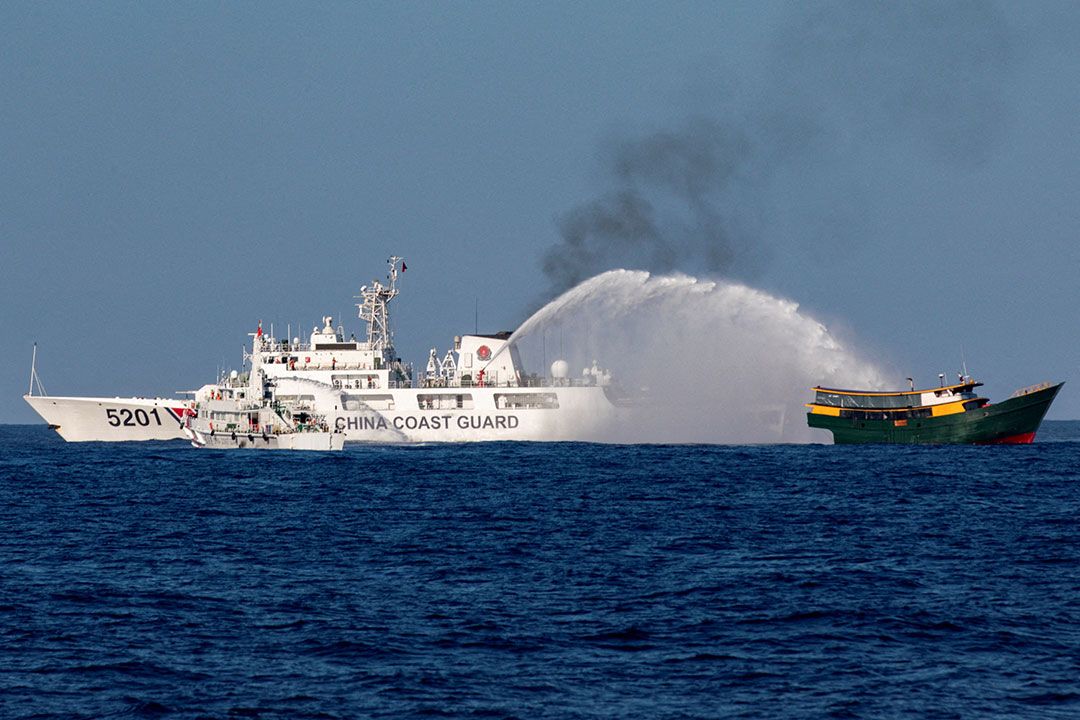Maritime law expert accuses China of foreign interference

By Kenneth Christiane L. Basilio
CHINA’s objection to a proposed Philippine law that seeks to enforce a 2016 ruling by a United Nations-backed tribunal favoring Manila in its sea dispute with Beijing is tantamount to foreign interference, according to maritime security expert.
Beijing should have no say in a domestic law enforcing Philippine maritime rights regardless of its effect on their diplomatic relationship, Jay L. Batongbacal, director of the University of the Philippines Institute for Maritime Affairs and Law of the Sea, told reporters on the sidelines of a forum discussing the bill on Tuesday.
The proposed Maritime Zones Act seeks to enforce an “illegal arbitral award” involving China’s Huangyan Dao, most islands and reefs of Nansha Qundao and their adjacent waters,” the Chinese Embassy in Manila told BusinessWorld in a Viber message.
This “severely violates China’s territorial sovereignty and maritime rights and interests in the South China Sea,” it said. “China firmly opposes it and has lodged solemn demarches to the Philippines.”
“Naturally, China is objecting to it,” Mr. Batongbacal said. “But then, the fact that they’re objecting to this domestic legislation is already getting close to foreign intervention.”
The five-member arbitral court based in the Hague ruled China had violated Philippine sovereign rights in its exclusive economic zone by building artificial islands and failing to prevent its citizens from fishing in the zone. It voided Beijing’s claim to more than 80% of the South China Sea based on a 1940s nine-dash line map.
Tensions between the Philippines and China have worsened in the past year as China’s coast guard continues to block Philippine resupply missions to Second Thomas Shoal.
The shoal is about 200 kilometers from the Philippine island of Palawan and more than 1,000 kilometers from China’s nearest major landmass, Hainan Island.
The Philippine measure should not affect Philippine-China relations since it is based on international law, Mr. Batongbacal said.
“It simply enacts into domestic law our maritime zones under international law,” he said. “In that sense, it implements the United Nations Convention on the Law of the Sea.”
China, which has ignored the 2016 ruling, said last month the measure is illegal.
“The Maritime Zones Act approved by the Senate of the Philippines has attempted to further enforce the illegal arbitral award on the South China Sea by domestic legislation,” Chinese Foreign Ministry spokesperson Mao Ning told a news briefing last month.
But Mr. Batongbacal said it is China that is “going against international law” by objecting to the country’s implementation of the 2016 ruling.
The law clarifying the country’s maritime territory is not a sign the country is looking to escalate tensions in the South China Sea, he said. “It’s just a signal that we’re not taking this sitting down.”
President Ferdinand R. Marcos, Jr. would likely sign the Maritime Zones bill into law before his state of the nation address (SONA) before Congress in July, Presidential Assistant on Maritime Affairs Andres C. Centino separately told reporters on the sidelines of the event.
“Hopefully soon, maybe before the SONA,” he said.
The National Maritime Council, which was activated under Executive Order (EO) No. 57, is set to meet this month to discuss the country’s maritime strategy, which is a framework that would enhance the Philippines’ territorial and sovereign rights over its seas, Mr. Centino said.



